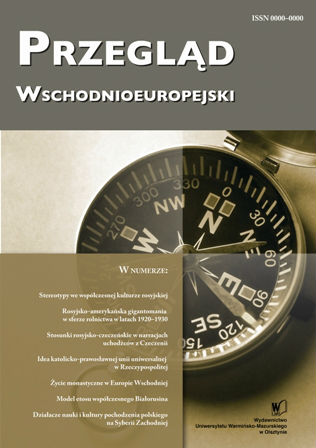
Europeanness as an Axiological Component of the Word State
Europeanness as an Axiological Component of the Word State
Keywords: the concept of state; media discourse; socio-political vocabulary; historical semantics
This paper is an attempt to describe the functioning of the term ‘state’ (Polish: ‘państwo’) in the European context in Polish media discourse. The analysis is based on the linguistic data excerpted from Polish weekly news magazines „Polityka” and „Wprost”. The results of the analysis reveal that Poland is described either as a European state or as a country aiming to be European.
More...
